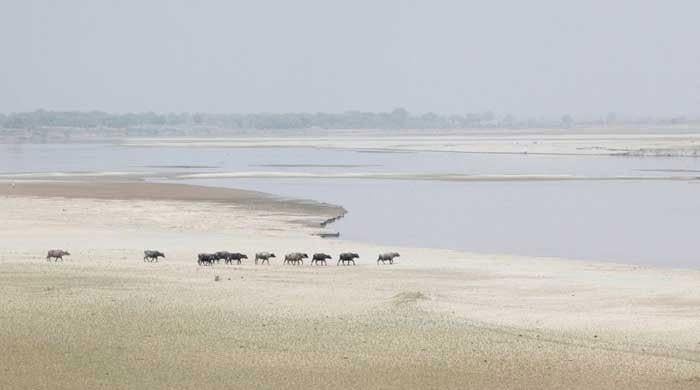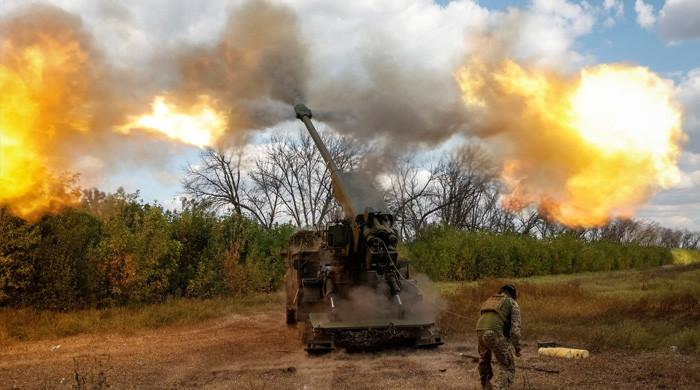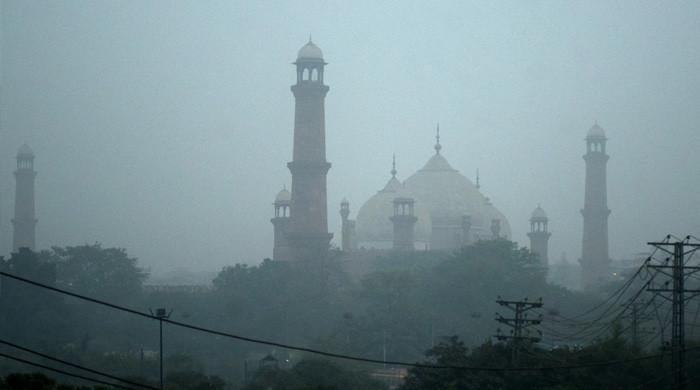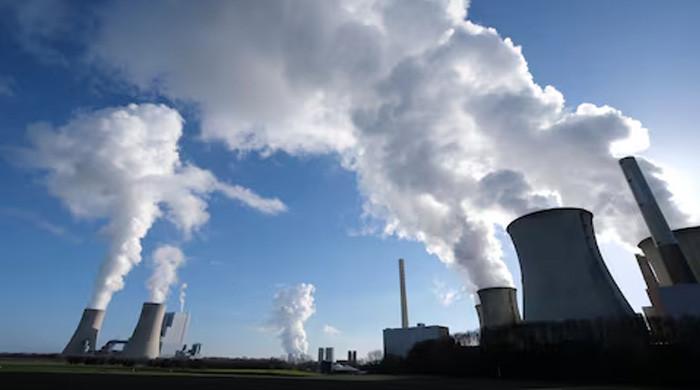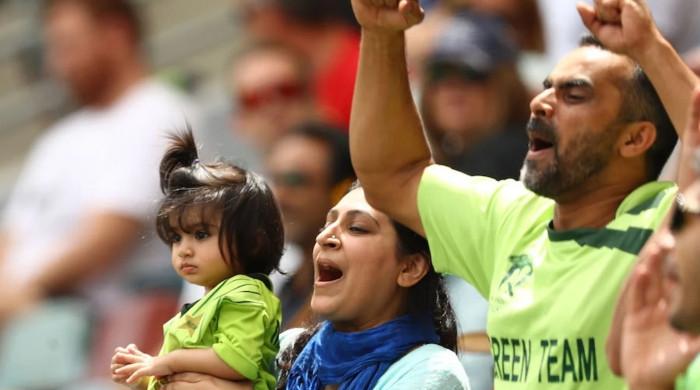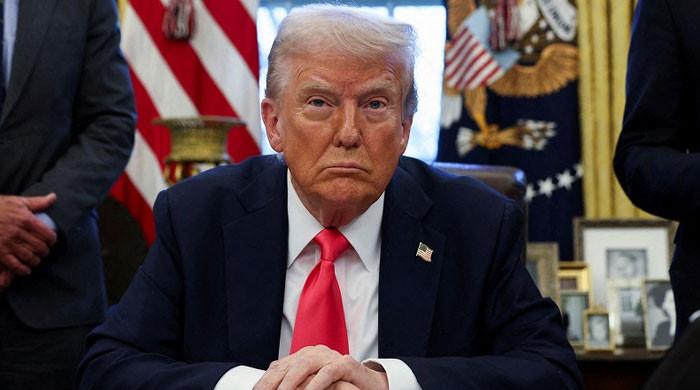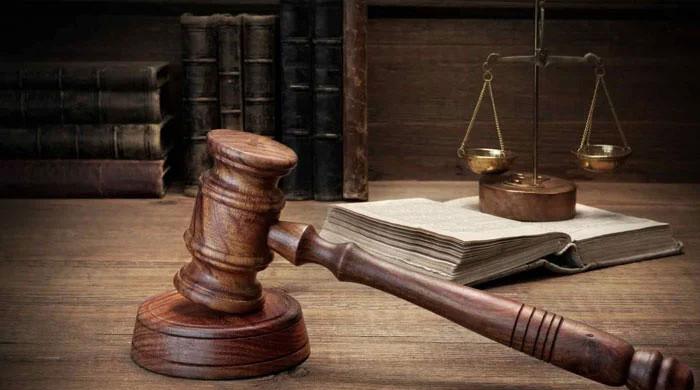'Myth of popularity’
In the present political scenario, many opponents of Imran Khan believe that his popularity image is a "myth"
December 23, 2022
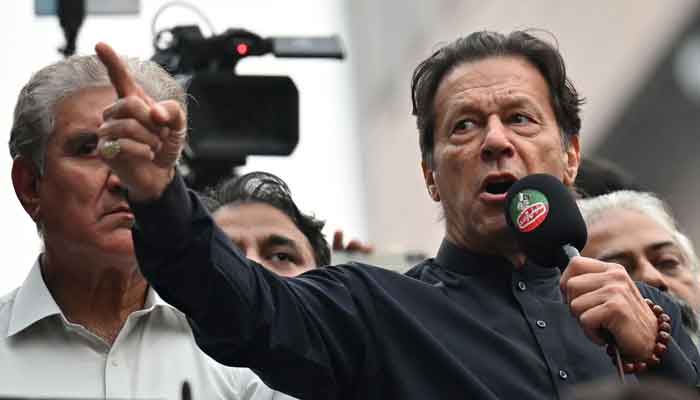
In the present political scenario, many opponents of former prime minister Imran Khan believe that his popularity image is a "myth" and not as much as it has been portrayed in the media though they do concede his popularity had increased in the post-April 10 politics since the vote of no-confidence against him passed and he was ousted as prime minister.
Some believe it’s a personality cult that most of the popular leaders in Pakistan have while others were of the view that he has managed to capture the confidence of a large majority of youth.
His supporters are confident that as long as he maintains his popular image, it would be difficult to defeat him in any "free and fair elections". But the big question is whether will he accept the result if failed to get a two-thirds majority.
I still remembered that in 2013, he was so confident of the two-thirds majority that in one of the TV shows he had even given in writing. I was also working there as Director of Current Affairs. As he came out of the studio, I asked Imran, "don’t you think you are a bit overconfident?” He smiled and said,” Mazhar, you know I always believe in optimism.”
However, Imran must be a bit disappointed that in the last 10 months he failed to get either of his demands accepted whether it is regarding holding fresh elections, the appointment of a new chief election commissioner, or his desire that a new government should appoint the new army chief.
He has now shifted all his blame to the former army chief General (retired) Qamar Javed Bajwa and publicly criticised him for backing his opponents, particularly Sharifs and Zardari.
But to say Imran's popularity is a "myth" perhaps, would be an understatement as the fact remains that in the post-April 10 scenarios, he and his party won 90% of by-elections — and that too in Punjab. Whereas in 2021, his party had lost 90% of by-elections as well as Cantonment Board elections.
In a democracy, the test for popularity often comes during elections and if we go by that standard, the real test will be in the next general elections in the country scheduled to be held in October next year, unless it is held earlier.
It is unfortunate that the lives of popular leaders in Pakistan are short-lived. During United Pakistan, the founder of the nation, Mohammad Ali Jinnah, did not survive and died due to illness a year after the 1947 Independence. Prime Minister Liaquat Ali Khan was assassinated a few years after Jinnah’s death.
After the imposition of the first Martial Law in 1958, when Field Marshal Ayub Khan, in a bid to become the civilian president, brought his own “Basic Democrats” system and announced Presidential elections, Jinnah’s sister Mohtarama Fatima Jinnah emerged as a popular leader but lost to Ayub in what many believed was a rigged poll.
In 1967, Zulfiqar Ali Bhutto, after he quit the Ayub cabinet as foreign minister, formed his own party with a left-oriented image, Pakistan Peoples’ Party, which within three years became the country’s leading party in then-West Pakistan due to its programme and Bhutto’s "Awami style"’
In East Pakistan, Sheikh Mujeeb-ur-Rehman, founder of Awami emerged as the most popular leader of the pre-1971 United Pakistan and established his popular image when he swept in the 1970 elections but neither PPP won any seat from East Pakistan nor Mujeeb won any in West Pakistan.
Since Ayub, instead of handing over power to the speaker under his own 1962 Constitution, handed over power to General Yahya Khan, the 1970 elections were held under Legal Framework Order (LFO) and Yaha played a double game that resulted in the tragedy of East Pakistan and Mujeeb, with his popular image, managed to create a new country called Bangladesh and established that his popularity was not a myth but reality.
Tragically, the same Mujeeb along with his family members except for his elder daughter Sheikh Haseena Wajid were assassinated a few years after the creation of a new country.
In post-1971 Pakistan, former prime minister Bhutto, who emerged as a popular as well as a charismatic leader in the 1970 elections led his party to a major victory as it became the most popular party in West Pakistan.
Many thought he became very unpopular in 1977 when General Zia ul Haq imposed Martial Law on July 5, 1977, on the pretext that the country was on the verge of civil war.
Bhutto was accused of rigging the elections, but as a result of negotiations, both Bhutto and the opposition alliance — Pakistan National Alliance (PNA) — agreed on the new election formula. Yet, the country was plunged into martial law (ML) and Zia promised elections in 90 days.
Prior to martial law during the 1977 elections, I was among the witnesses who had seen a huge procession of both PNA leader Air Marshal (retd) Asghar Khan and Bhutto in Karachi. They were huge though the city at that time was considered the stronghold of the then opposition.
In the post-ML, when Zia promised polls within 90 days, it was the test for both Bhutto and PNA. I, along with some other college friends, went to see one of the public meetings at Nishtar Park addressed by Begum Nusrat Bhutto.
It was huge and a clear indication that the people had rejected ML. The same was the situation in Punjab and intelligence reports suggested that Bhutto had regained popularity after martial law.
Days before the elections in October 1977, some right-wing "intellectuals and owners/editors" met Zia in Lahore and asked to postpone elections.
Initially, Zia was reluctant and asked them about public opinion.
One of the participants of that meeting informed me that, "we told them, presently the opinion is with PPP but if you postponed elections, they would build the public opinion against polls at this stage,” and admitted it was intellectual dishonesty on their part as they were scared of Bhutto’s possible return to power.
Zia became ruthless after postponing the elections and not only imposed complete censorship on the press but banned political activities as well. It followed one of the worst incidents in Pakistan’s political and judicial history when a popular leader was "hanged" in what is regarded even today as the worst judicial murder by the SC through its 4-3 decision.
Years later, one of the four judges who gave the verdict in favour of the death sentence late Justice Naseem Hasan Shah admitted that he was pressured.
Many questioned Bhutto’s popularity and said that had he been a popular leader, people would have come to the street to save him. On the other, hand thousands were in jail, lashed, some of them hanged, but it was also a fact that PPP’s lower cadre blamed some of the party’s top leaders for being hand in gloves with Zia.
After Bhutto’s execution, Gen Zia and his cronies thought with his death his popular image would die down soon but it didn’t happen and for nearly three decades, till the assassination of his daughter Benazir Bhutto, the politics revolved around pro and anti-Bhutto.
Benazir herself emerged as a popular leader and for the first time on her return from exile in 1986, was received by nearly a million people on arrival at Lahore.
She twice won the elections but her government was not allowed to complete her tenure and was dismissed in 1990 and 1996. She was expected to win for the third time in 2007, but days before the elections, she was assassinated after addressing an election-related public meeting at Liaquat Bagh, Rawalpindi on December 27.
Nawaz Sharif, whose entry into politics was undoubtedly the result of General Zia and former governor Punjab General (retd) Ghulam Jillani, but later, Nawaz consolidated his own position, particularly in Punjab.
However, despite being elected thrice as prime minister he never had good relations with successive army chiefs and the establishment and in the end, in 2016, the Supreme Court disqualified him following a conviction in a graft case.
Though not at a national level, Altaf Hussain, founder of MQM, enjoyed unprecedented support in urban Sindh for nearly three decades. Never before have cities like Karachi, Hyderabad, Sukkur, and Mirpurkhas seen such a rise.
He remained an undisputed leader of the MQM till the 2013 elections. The party is now passing through its worst crisis, and sharp differences within their ranks not only led to the fall of Altaf but also the breakaway of the party.
Thus, popularity has its own charm and value but it all depends on how the leaders and party used it as with time and in the changing and emerging political scenarios it could also die down and even could vanish.
PPP was a national party and during the Benazir period, it was called "charoon soobon kye zanjeer (a chain holding all four provinces together)’, but now, it has practically been wiped out in Punjab and Khyber Pakhtunkhwa.
In the absence of charismatic leaders like Bhutto and Benazir, it may not be easy for them to regain lost glory.
Nawaz's test will come if he returns before the general elections, otherwise, not only himself, but his party may find it difficult to regain ground. Altaf also looks like history as neither he nor his party have been allowed to take part in any activities since August 22, 2016.
It is now a test for Imran to establish his popularity in the general elections. His popularity, whether it is a myth or reality, would be established if he manages to win the next polls. His main challenger will be the Sharifs.
If he succeeds in the elections, and that too with a nearly two-thirds majority, he will not be able to achieve a milestone but an all-time popularity record. Can Imran create such a record and if not, will he accept the result?
The writer is a columnist and analyst for GEO, The News, and Jang. He tweets @MazharAbbasGeo




